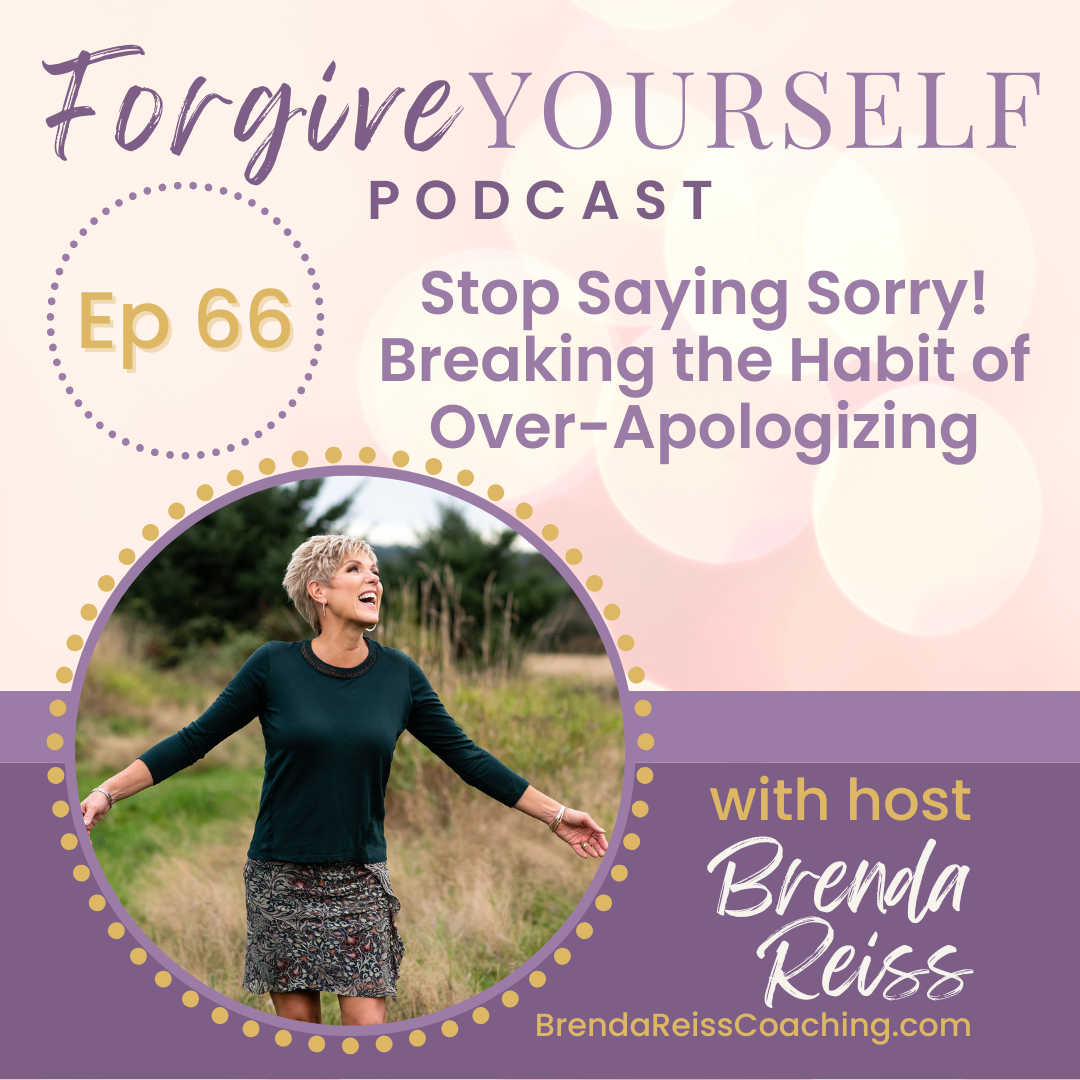In this transformative episode, I invite you into a deeply personal exploration of a habit many of us share but rarely discuss – over-apologizing. This pattern runs especially deep for women, and as someone who has walked this path myself, I understand the quiet way it diminishes our presence and power.
“There’s a big difference between saying sorry for hurting someone and saying sorry for just existing.”
Have you caught yourself saying “I’m sorry” when asking a question in a meeting? Or apologized to someone who bumped into you at the grocery store? These automatic responses might seem harmless or even polite, but they reflect something much deeper about how we’ve been conditioned to move through the world.
I begin by tracing the historical roots of this habit, showing how it’s not just individual behavior but part of a centuries-long pattern of societal expectations. From Victorian ideals of women as “delicate moral guardians” to post-war pressures pushing women back into submissive domestic roles, to contemporary media that subtly reinforces these messages – our tendency to apologize has been carefully cultivated across generations.
This historical context helps explain the double standard many of us experience: when women are assertive, they’re often labeled “aggressive,” while men displaying identical behavior are celebrated as “confident” or “strong.” Understanding these dynamics helps us recognize that our apologetic tendencies aren’t personality flaws but adaptive responses to social pressures.
“We teach people how to treat us. When we over-apologize, we teach others that our very presence requires forgiveness.”
Throughout the episode, I connect over-apologizing to deeper psychological patterns: low self-esteem that makes us feel unworthy of taking up space, fear of conflict that drives us to smooth things over preemptively, and people-pleasing tendencies that prioritize others’ comfort above our own needs and truth.
I share relatable examples from everyday life – the hesitant “sorry, but” that precedes sharing an idea in a meeting, or the automatic apology when someone else bumps into us – illustrating how these small moments accumulate into a pattern that shapes how others perceive us and, more importantly, how we perceive ourselves.
“Over-apologizing can become a self-fulfilling prophecy. The more we do it, the more we believe we’re always in the wrong – because our brain is always listening.”
The heart of this episode focuses on practical steps to break this habit:
- Building awareness by tracking when and why you apologize
- Replacing “sorry” with empowering alternatives like “excuse me,” “thank you for your patience,” or “I believe”
- Practicing assertiveness through role-playing and regular practice
- Surrounding yourself with supportive people who model confident communication
I share a personal story about working with a medical intuitive who prescribed a powerful exercise for reclaiming my right to exist fully: stomping my feet each morning while declaring “I deserve to be here and take up space.” This seemingly simple practice helped me reconnect with my personal power and worth.
“Breaking the habit of over-apologizing takes practice, but it’s one of the most empowering changes you can make.”
The transformation we’re seeking isn’t about becoming someone who never apologizes. Rather, it’s about reserving our apologies for situations that truly warrant them – when we’ve made a mistake or caused harm. This distinction is profound: there’s a world of difference between apologizing for hurting someone and apologizing simply for existing.
By breaking the cycle of over-apologizing, we not only change how others receive us but fundamentally shift our relationship with ourselves. Each time we replace an unnecessary “sorry” with a more empowered response, we affirm our right to be seen and heard.
“Assertive does not mean aggressive. It is okay to take up space – you deserve to be here.”
This journey toward more assertive communication doesn’t happen overnight. It requires patience, practice, and compassion for ourselves when we slip into old patterns. But each small shift creates ripples of transformation, gradually building a new foundation of self-worth and authentic presence.
I invite you to join me in this practice, starting today. Notice your apologies, question them gently, and experiment with new ways of expressing yourself. Remember: you belong here, your voice matters, and you deserve to take up space – no apology needed.
“You do not have to apologize for taking up space. You belong here and your voice matters.”




0 Comments